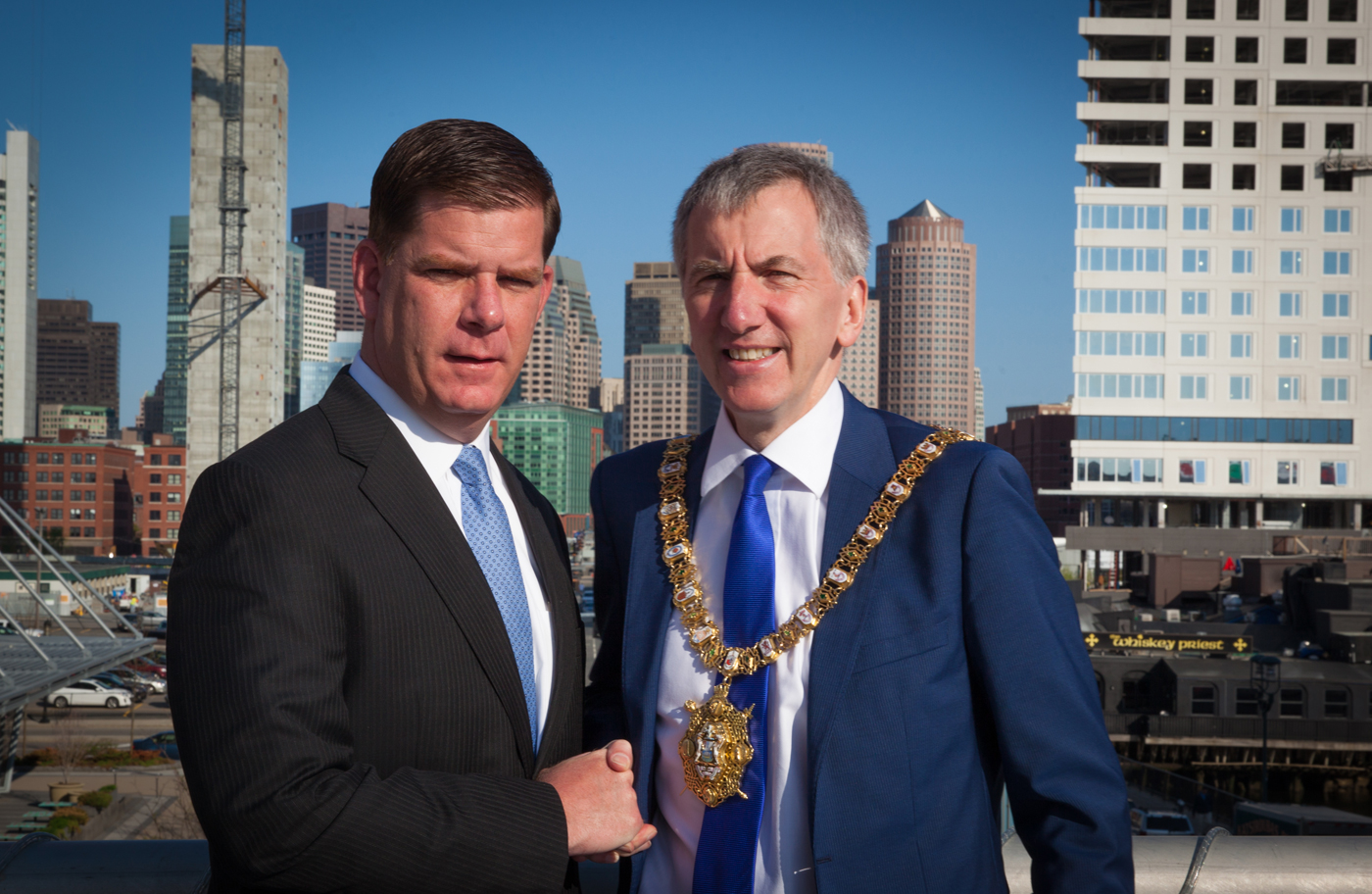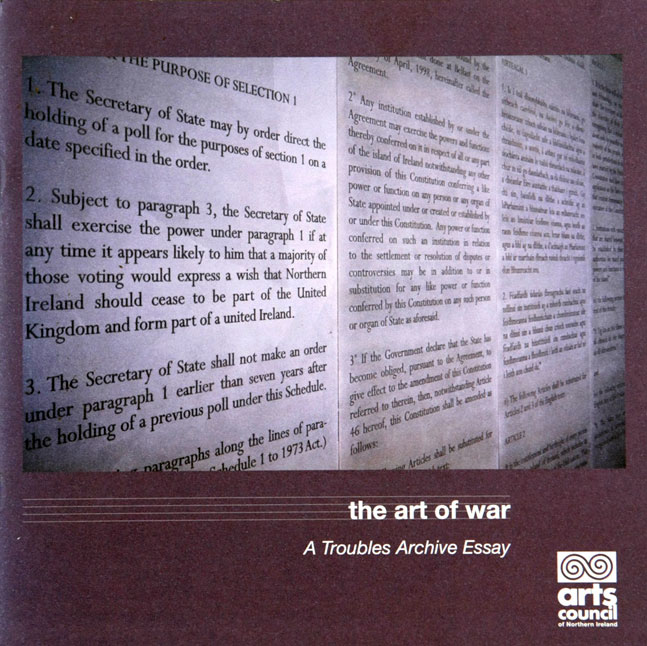
Boston, Belfast Announce Sister City Agreement
BOSTON – Today Boston Mayor Martin J. Walsh and Belfast Lord Mayor Máirtín Ó Muilleoir signed a Sister Cities agreement. The signing took place at a breakfast event hosted by the Irish American Partnership. This is the first Sister City agreement signed by the City of Boston since 2001.
“Together, Boston and Belfast will strive to foster educational exchanges, promote cultural understanding, and stimulate economic development through our new Sister City relationship. We look forward to new beginnings with our “sister” Belfast, as this formal agreement goes far beyond a declaration on ink on paper; it truly speaks to our historic connection, genuine ties, and deeply linked heritage.”
“Belfast and Boston share enduring links of history and heritage over many years and they will now provide the foundation for a new future-focused Sister City relationship between Boston – the colleges, life-sciences and Irish American capital of America – and Belfast – the fastest-growing knowledge economy of Europe, birthplace of the Titanic, home of Game of Thrones and a world-leader in peace building,” said Lord Mayor Ó Muilleoir.
“For two decades, the Partnership has been a strong advocate of the peace process in Ireland and has focused in particular in supporting schools and shared education in the city of Belfast,” said Joseph F. Leary, President and CEO of the Irish American Partnership. “We are thrilled to see Boston and Belfast unite as sister cities to forge a new future of positive partnership between our peoples.”
The agreement is designed to foster stronger economic development, trade and investment, tourism, youth, cultural, faith based exchange and educational linkages between the two cities, and to increase awareness of both cities as being growth cities in the connected health and life sciences, creative industries, tourism, financial services and the knowledge economy sectors.
It commits both cities to identifying activities that can generate new initiatives to further nurture economic, social, cultural and faith based relationships, and to:
- promoting both cities to their respective business and academia sectors as locations for trade and investment;
- facilitating trade missions and business-to-business dialogue between the two cities;
- exploring and encourage cooperation and exchange between local development agencies, Chambers of Commerce and tourism bodies;
- helping facilitate faith-based exchanges between faith leaders in both cities;
- encouraging ‘study abroad’ programs, and relevant research opportunities, between the cities’ respective colleges and universities;
- promoting mutual leisure and business tourism opportunities;
- encouraging cultural exchanges; and
- exploring joint policy development and sharing of best practice in the fields of urban development, regeneration and city financial models.
Boston’s Sister City programs operate as non-profit, independent organizations, and are heavily dependent on voluntary support and contributions. During the 1950s, citizens and government officials recognized the importance of developing closer international relations, and the search for a Sister City began. The success of this program prompted the development of other goodwill sister relations. To the present date, eight Sister City friendships have been formed: Kyoto, Japan (established in 1959); Strasbourg, France (established in 1960); Barcelona, Spain (established in 1980); Hangzhou, China (established in 1982); Padua, Italy (established in 1983); Mebourne, Australia (established in 1985); Taipei, Taiwan (established in 1996); Sekondi-Takoradi, Ghana (established in 2001).
The Sister Cities Program began as a national concept in 1956, when President Dwight D. Eisenhower called for massive exchanges between Americans and people of other countries to create international understanding and goodwill. A Sister City agreement is formalized when two communities from different nations join together to develop a friendly and meaningful relationship. The two cities exchange people, ideas, culture, education, and technology. Citizens from both communities learn about each other’s culture and become directly involved in developing unique solutions to common problems. The Sister Cities Program promotes world peace in an individual level and encourages citizens to better understand community, by contrasting their way of life with another culture.



